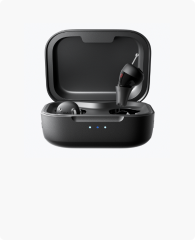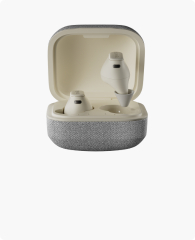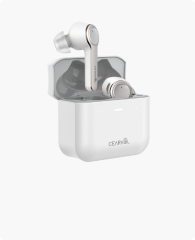As a hearing health professional with years of experience, I've had the privilege of helping people manage a wide variety of hearing issues. One of the most common and yet often overlooked combinations I see is the relationship between diabetes and tinnitus. If you're living with diabetes, especially type 2 diabetes, you might be more familiar with the frustrating effects of tinnitus and dizziness than you'd like to be. But what exactly is the connection, and how can you manage these symptoms effectively? Let's talk about it in detail.
In this article, I'll walk you through how type 2 diabetes, tinnitus, and dizziness are linked, and what steps you can take to manage these symptoms. Whether you've just been diagnosed or have been struggling with them for a while, understanding the root cause is the first step toward finding relief.
🚀 Navigate This Post
- ➤ Part 1: Understanding the Link Between Diabetes and Tinnitus
- ➤ Part 2: How Type 2 Diabetes, Tinnitus, and Dizziness Are Interconnected?
- ➤ Part 3: Managing Tinnitus and Dizziness with Diabetes
- ➤ Part 4: The Importance of Early Intervention and Monitoring
- ➤ Part 5: Take Charge of Your Hearing Health Today
- ➤ Frequently Asked Questions
You may also be interested in:
- Tinnitus and Hearing Loss: What’s the Connection?
- How Hearing Aids Can Help with Tinnitus: A Comprehensive Guide
- Can You Hear Colors? The Fascinating World of Chromesthesia Uncovered!
Part 1: Understanding the Link Between Diabetes and Tinnitus
Tinnitus—the sensation of ringing, buzzing, or hissing in the ears—is a condition that can greatly impact your daily life. When you're living with diabetes, this condition can become even more prevalent due to the damage high blood sugar can do to the blood vessels and nerves in the ear.
People with diabetes are at a higher risk of developing tinnitus because high blood sugar levels can lead to poor circulation. This impacts the blood flow to the ears, affecting their delicate structures, which can result in the development of tinnitus. Furthermore, people with type 2 diabetes often experience nerve damage (neuropathy), and this can also extend to the nerves in the inner ear, contributing to the onset of tinnitus.

Case Study: Sarah's Experience with Diabetes and Tinnitus
Let me share the story of Sarah, one of my patients who had been living with type 2 diabetes for several years. Over time, she began to notice a constant ringing in her ears, which progressively worsened. After a series of tests and a review of her diabetes management, we realized that her diabetes and tinnitus were closely connected. Once we addressed her blood sugar levels, the intensity of her tinnitus significantly reduced, and she started feeling better overall.
Sarah's story is not unique, and it serves as a reminder of how important it is to manage your diabetes to help prevent symptoms like tinnitus from taking hold.
Part 2: How Type 2 Diabetes, Tinnitus, and Dizziness Are Interconnected?
If you're already managing diabetes, dealing with dizziness on top of tinnitus can feel like an extra burden. So, what's going on here?
When blood sugar levels fluctuate, they can cause changes in blood pressure, which may lead to dizziness. In people with diabetes, especially type 2 diabetes, this is a common issue. The inner ear, which controls balance, relies on stable blood flow. If blood vessels are damaged or circulation is impaired due to high blood sugar, balance problems and dizziness can arise.
The simultaneous presence of tinnitus and dizziness can make daily activities even more challenging. The ringing sound in your ears can already be disorienting, but when combined with dizziness, it can affect your ability to focus and move comfortably.
Part 3: Managing Tinnitus and Dizziness with Diabetes
So, how can you manage these symptoms and improve your quality of life if you're dealing with diabetes, tinnitus, and dizziness? Fortunately, there are several strategies that can help you take control:
1. Prioritize Blood Sugar Control
The first step is always controlling your blood sugar levels. Diabetes and dizziness are often a direct result of fluctuating glucose levels, and stabilizing those levels can help alleviate many of the symptoms you're experiencing. Work with your healthcare provider to ensure you have a solid diabetes management plan in place.
2. Consider Hearing Aids for Tinnitus Relief
For those struggling with tinnitus, hearing aids can provide significant relief by amplifying external sounds and masking the internal ringing. The Cearvol Diamond X1 Black Rechargeable Hearing Aids are a great option for managing tinnitus, as they are designed to enhance your hearing and reduce the perception of tinnitus.
Hearing aids not only improve your hearing, but they also help mask the sounds associated with tinnitus. For those of us dealing with type 2 diabetes, finding a way to manage tinnitus is one step toward reclaiming your sense of balance and peace.
3. Exercise and Hydration
Incorporating regular physical activity into your routine can stabilize blood sugar levels and improve circulation. Staying hydrated is equally important, as dehydration can worsen dizziness. Exercise helps keep your balance system functioning properly and minimizes the impact of dizziness.
Part 4: The Importance of Early Intervention and Monitoring
If you're dealing with both diabetes and dizziness, it's crucial to monitor both your blood sugar and your symptoms regularly. Early intervention can prevent these issues from spiraling and affecting your daily life. Don't wait too long to seek help; the sooner you address these symptoms, the better.

Signs of hearing loss and balance issues should not be ignored, especially if you have a history of diabetes. Make sure to have regular check-ups with your healthcare provider and an audiologist to stay on top of both your hearing and diabetes management.
If you're unsure whether your dizziness or tinnitus could be related to diabetes, it's worth getting checked. Remember, untreated symptoms can worsen over time, so it's always better to be proactive.
For a deeper understanding of hearing issues, you can check out our article on the sign of hearing loss.
Part 5: Take Charge of Your Hearing Health Today
Managing diabetes, tinnitus, and dizziness can seem like a challenge, but with the right tools and knowledge, it's absolutely possible. Prioritize your diabetes management, explore hearing aids like the Cearvol Diamond X1, and take steps to improve your overall health. By doing so, you can not only minimize the impact of tinnitus and dizziness but also improve your overall quality of life.

Diamond X1 - Best Hearing Aids with Bluetooth
Newcomer Price
$249.99 $309.99
- ✔ Adaptive sound modes for clear hearing.
- ✔ Bluetooth for calls & streaming.
- ✔ App-controlled, customizable adjustments.
- ✔ Rechargeable & fast charging.
- ✔ Ideal for mild to moderate hearing loss.
If you're ready to take control of your hearing health, consider exploring our guide to the best otc hearing aids, and discover how investing in the right hearing aids can make a world of difference.
Remember, you're not alone in this journey—help is available, and taking action today can lead to a brighter, more comfortable tomorrow.








Leave a comment
All comments are moderated before being published.
This site is protected by hCaptcha and the hCaptcha Privacy Policy and Terms of Service apply.